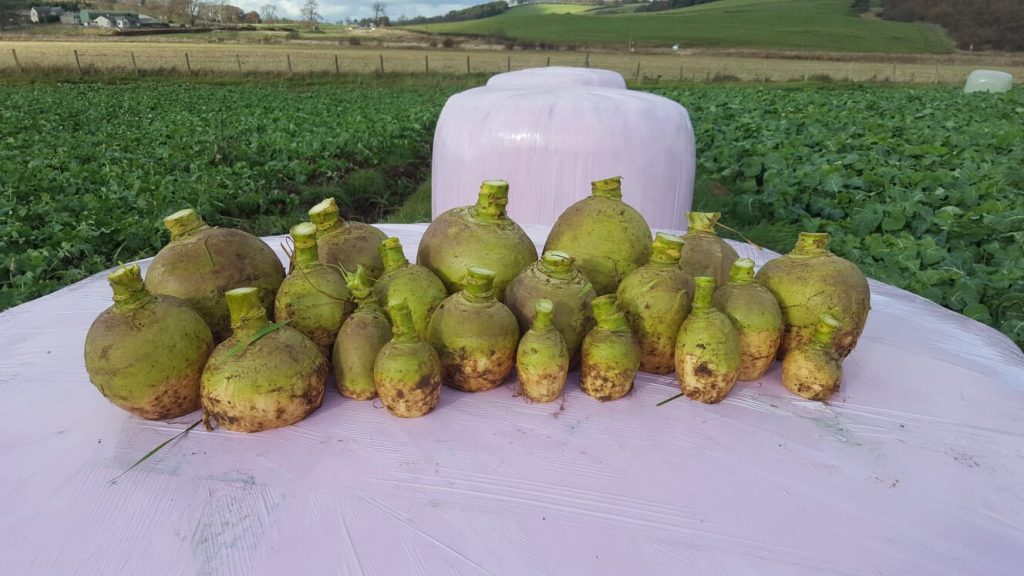UK field trials performed with the new generation Triumph swede variety have proven its value as a cost-effective out-wintering option for livestock farmers.
In studies Germinal performed in 2018 and 2019, crops monitored across farms in England, Wales and Scotland noted bulb yields of 9tDM/ha and high levels of leaf retention, which resulted in significant additional crude protein.
With the average growing costs calculated at £385/ha, Germinal estimates the cost of dry matter from swedes to be 4p/kg, thus creating opportunities for livestock farmers to achieve greater sustainability in production systems.
Germinal grassland expert Ben Wixey
“From the results we’ve seen with Triumph, there’s no doubt that swedes offer a cheap and simple out-wintering option that has the potential to reduce costs of production in both cattle and sheep sectors in the UK,” says Ben Wixey, Germinal GB national agricultural sales manager.
“While the bulb is the primary feed source from swedes, contributing as much as 120,000MJ/ha of energy, we’ve been impressed with the ability of the variety Triumph to retain its leaves through into the grazing period. From measurements taken during our programme of field trials, we estimate the retained leaf material to provide around 1t/ha of crude protein to grazing livestock, which is a significant bonus.”
The optimum drilling window for modern swedes is between the middle of May and the end of June for most UK farmers, with crops typically being ready to graze within approximately 25 weeks.
“With a block grazing approach, five hectares of Triumph swede could be expected to support around 400 in-lamb ewes, or 75 bulling heifers, for up to 100 days,” Ben adds. “That’s creating a huge opportunity to reduce bought-in feeds and lower the cost of production significantly.”

During Germinal GB’s field trials programme, Triumph swede produced up to 120,000MJ/ha of energy from its bulbs, with retained leaf material contributing up to 1t/ha of crude protein.
Further information on establishing and managing swedes for out-wintering can be found here.
